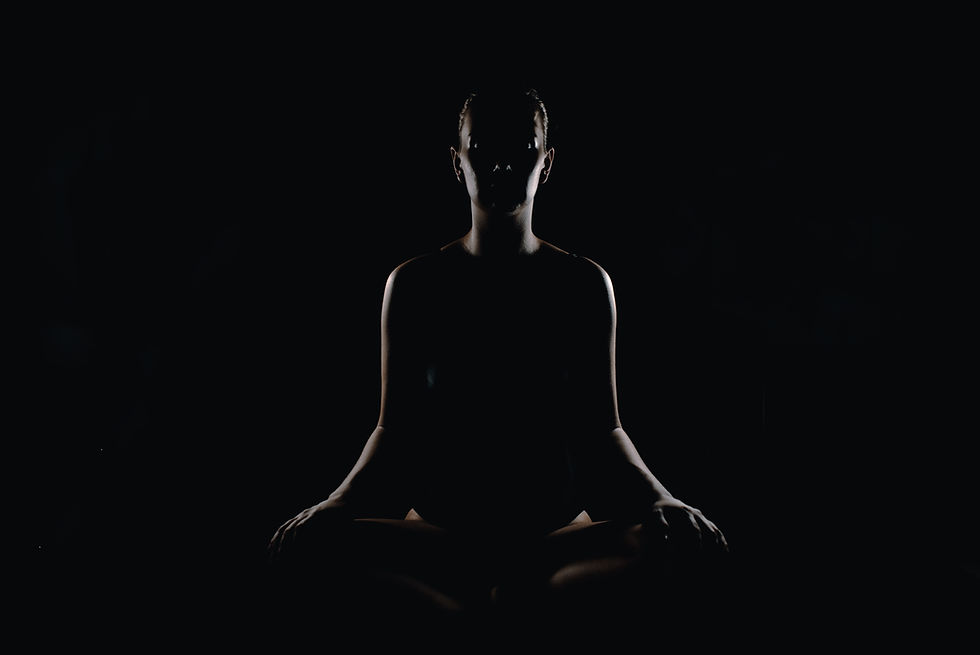Mindfulness and corona: why we need it now more than ever
- Ann Verboven
- Mar 30, 2020
- 3 min read
Updated: Jan 4

The job of psychologists is to discover, validate and implement methods to address mental issues, enhance adaptability in the outside world and strengthen well-being. Mindfulness is one of these methods. It has been around for centuries as a significant pillar of Buddhist practice and psychologists started to be interested in the 60s. Slowly the Western version of mindfulness came to life, an interpretation of the Pali word sati described in the teachings of the Buddha as to maintain awareness of reality, whereby the true nature of phenomena can be seen.
What does that mean, keeping awareness of reality?

Spring is in the air and holds the promise of Summer. The sun shines warm and you are sitting outside on the balcony enjoying the start of the new season. Someone in the house says that it would be nice to have some ice-cream. All of a sudden you are thinking about ice cream. You would like to have some. Actually, you need to have it badly. You imagine holding a cone with two big scoops of your favorite flavor maybe with some whipped cream on top (chocolate sprinkles anyone?) and imagine the sweet creamy substance melting in your mouth.
Someone just randomly planted an ice-cream seed in your head and in less than a minute the seed grew the size of a jungle that completely took over your thinking. One question we should ask is how relevant is the idea of ice-cream and is it worth spending so much time with the idea? Ice-cream is just of course just one example of the many signals we pick up every day. Our brain receives and processes a massive amount of information within milliseconds.
Signals come in through our sensory system consisting of five basic senses: vision, hearing, smell, taste, and touch. Sensing, like hearing the word ice-cream, sets in motion mental processes to deal with the information. One basic mode of sifting through the incoming information is by adding value to the signal in the form of like and dislike. This in turn motivates our reactions. When we like something we would like to have it and keep it. Disliking means we need to get away from it. This constant pull and push disrupts our inner peace and balance. It constantly flips us into doing-mode, a mode in which move from one thing to another usually in automatic pilot.
Generally we just eat whatever is right in front of us when we open the fridge. Without investigating whether there might be something more nurturing in the back. Something that might be better for us in a given moment. This how we approach our lives as well. We consume what comes our way with little consideration.

Mindfulness practice teaches us to screen for irrelevant information and to not engage with what is not worth the hassle. Being mindful in its most basic form is simply being able to separate the wheat from the chaff. By deliberately paying attention, it's being able to choose which grains to plant and grow.
How is mindfulness beneficial during the current corona outbreak?
For one thing, people who are more mindful touch their face less. During formal mindfulness meditation they have learned how to keep track of their movements by becoming more self-aware. For example, If they notice that their nose is itchy and want to scratch it, they can choose not to. In the same manner, mindful people will refrain more often from shaking hands or hugging because they can override these automatic behaviors.
We can also use mindfulness when we engage with media reports on corona and COVID-19. First of all, it can help us to sift through the news and discern what is useful and what is not. Furthermore, when we are mindful we might be able to detect first signs of fear or uncertainty induced by alarming headlines and respond in a way that is supportive.

By being aware of our reactions we can intervene swiftly by using coping strategies such as regulating our breath or more carefully selecting our thoughts and/or words. For example, we refer to staying at home as being in 'quarantine'. Re-labeling the word quarantine to 'safe space' might shift our focus to the actual reason why we stay at home in the first place instead of going down the rabbit hole of quarantine-negativity. Mindfulness helps us to direct our focus on what is important at any given moment. This comes in handy when we work from home since we might get more easily distracted by the home environment.
Comments